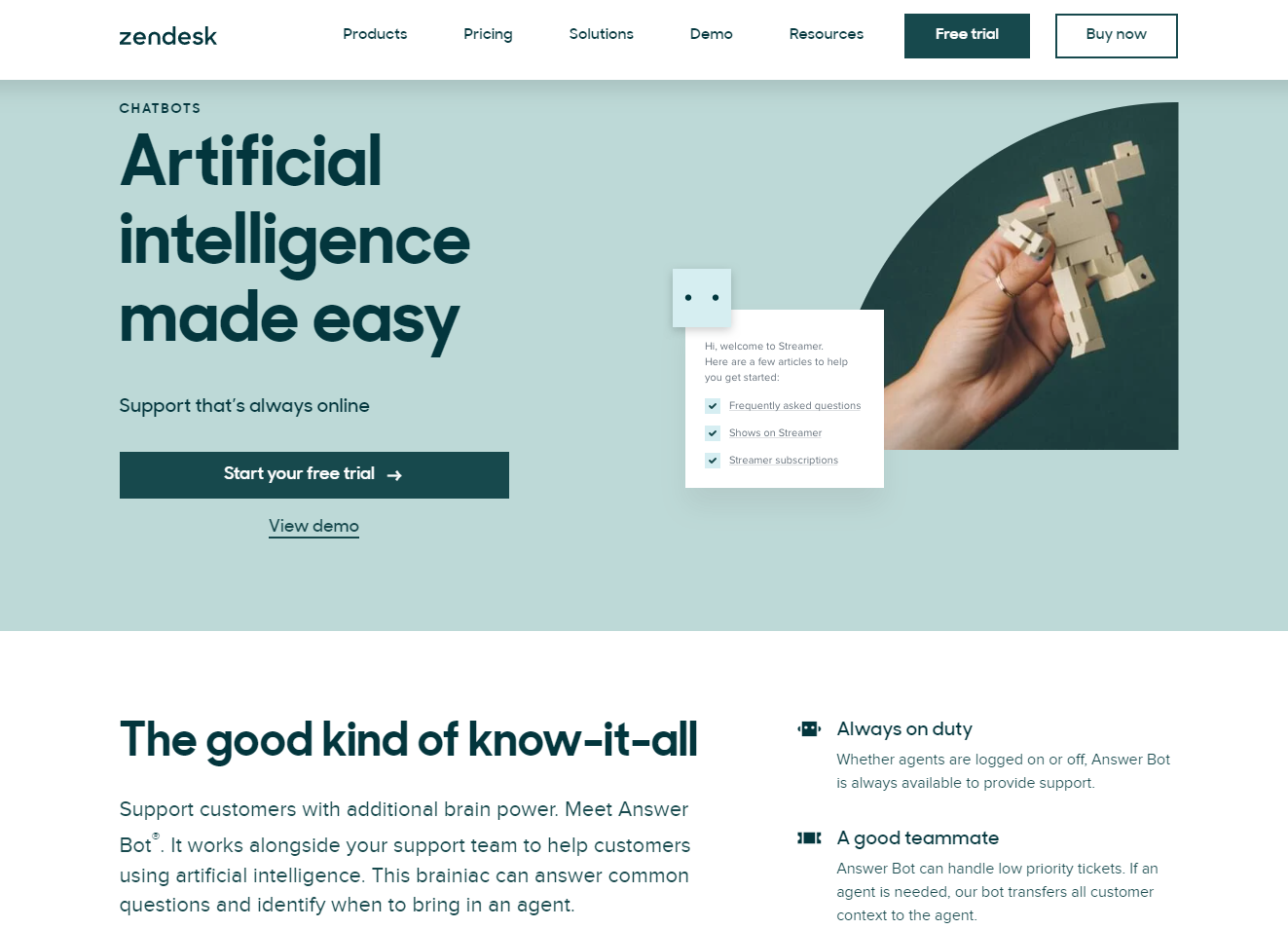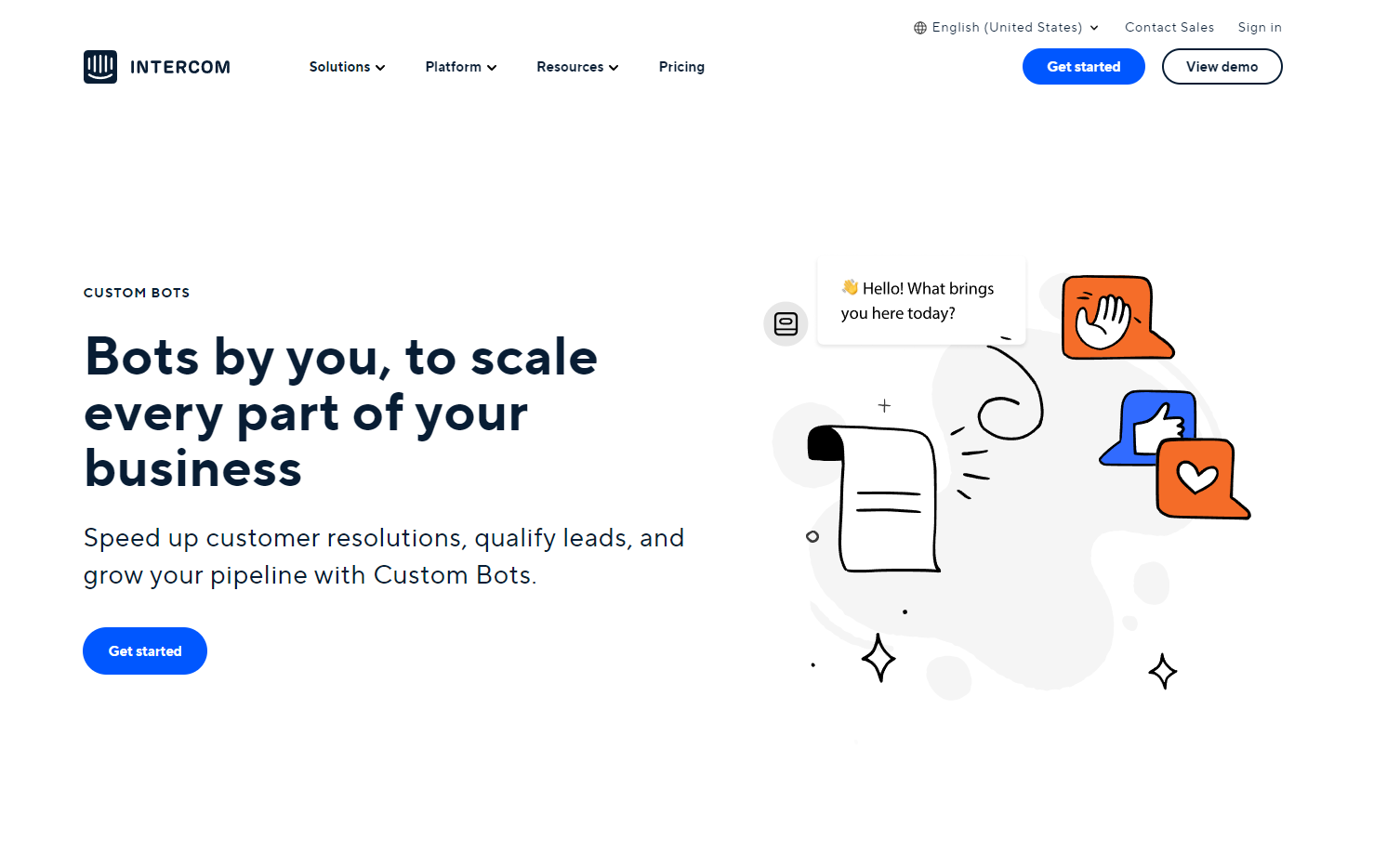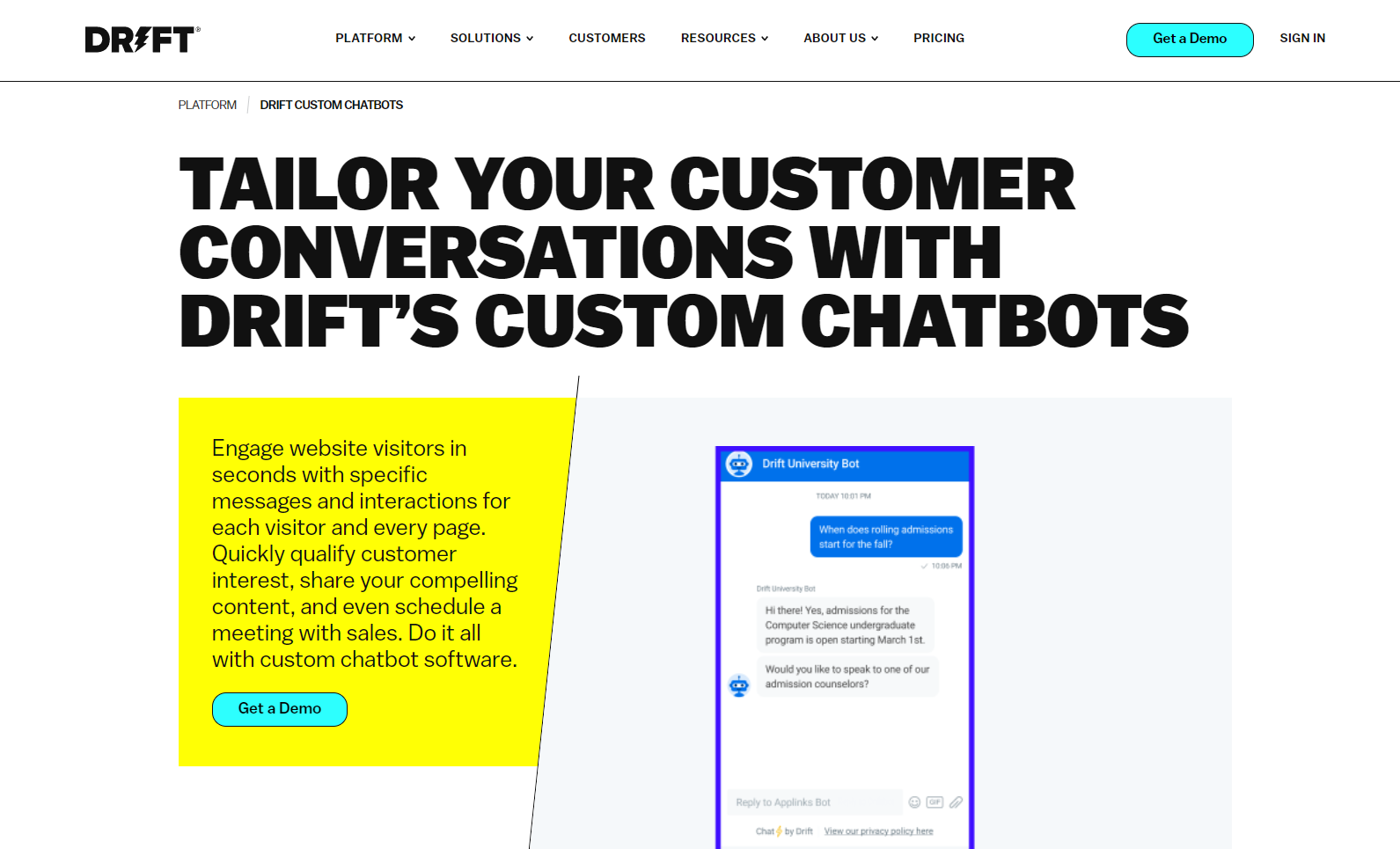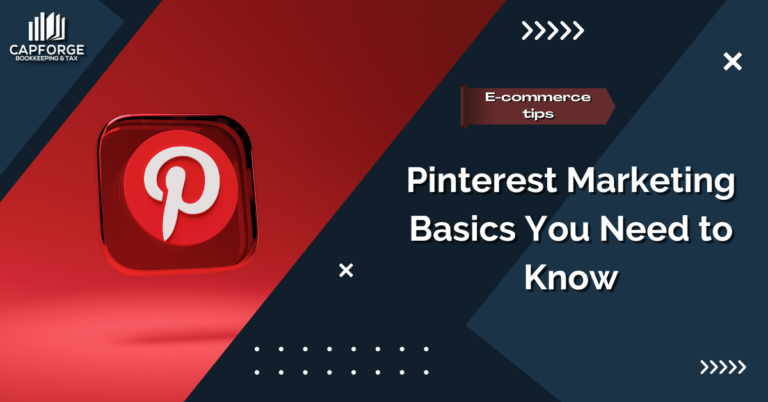Conversational Marketing: Here’s How it Works
Perhaps you’ve heard of the term conversational marketing before, but you’re unsure exactly what it is. In a nutshell, conversational marketing is a one-on-one interaction with a prospect. The goal is to create personalized experiences and open up opportunities for your business through messaging apps. As chatbots become an integral part of a brand’s website, conversational marketing has taken the e-commerce world by storm, helping brands drive their sales numbers and boost engagement rates.
If you’re interested in learning more about conversational marketing, you came to the right place. This article will discuss how conversational marketing works and why you should implement it as part of your website.
What is conversational marketing?
Conversational marketing is a personalized approach to business that focuses on engaging with customers via chat. Typically, an AI chatbot starts the conversation and guides the prospect down the sales funnel. We live in a digital age where customers want instant responses, and chatbots can help facilitate the conversation without human assistance.
Think of conversational marketing as a feedback-oriented approach to marketing. The goal here is to create a positive impression with the prospect by answering questions and providing them with the information they need.
Conversational marketing can occur in any two-way communication, whether phone or email. As long as you have direct contact with your prospects, you can cater to their interests and offer personalized options for them.
How does conversational marketing work?
To paint a clearer picture, let’s take Lyft as an example. As one of the most widely used ride-sharing apps in the U.S., Lyft uses an interactive AI chatbot to make bookings easy. Users can request a ride with a few taps or even use voice commands on Amazon Echo to book a ride. The chatbot uses machine learning to predict what the user wants to do next and offers personalized options for them.
The key to making conversational marketing work is to understand the needs of your audience and provide them using smart chatbot solutions. From there, it’s about communicating with your prospects with the right tone and voice that your brand represents. Remember, chatbots are more than just automated response systems; they give your brand a face. That’s why it’s important to choose the best chatbot solution that fits your brand’s style.
Why should you implement conversational marketing?
There are plenty of reasons why brands should consider conversational marketing. Here is a couple of them:
1. Learn more about your customers
When you engage in a one-on-one interaction with your core audience, you get to know more about their buying habits, pain points, etc. You’re having a direct conversation with people that have a genuine interest in your brand’s offerings, and by analyzing their responses, you can cater to their exact wants/needs.
Conversational marketing gives you insight into what your audience expects from your brand. The more you learn about your prospects, the higher your chances of converting them into regular customers.
2. Strengthen your inbound marketing strategy
The idea behind inbound marketing is to provide relevant, timely, and accurate content. It’s about creating experiences that cater to their interests. Conversational marketing follows the same principles, but the difference lies in the application aspect.
Think of the chatbot as an inbound sales representative ready to guide the prospect throughout the buying journey and convert them into customers. Conversational marketing ties well with inbound marketing because it’s a contextually appropriate way to attract leads. You can nurture prospects that find your inbound content appealing with chatbots to provide more information regarding your brand and its offerings.
3. Boost your engagement rates
Conversational marketing is great for engagement as it encourages prospects to interact with your brand. Using chatbots allows you to display your brand’s personality and captivate your audience with your unique voice. Personalizing chatbot conversations can dramatically affect how people perceive your brand, especially if you have a story to tell.
Regardless of how you approach conversations, you want to ensure that your chatbots lead prospects in the right direction. Aim to provide clear, concise responses to maximize engagement and create a reliable chatbot experience with your customers.
4. Create a strong first impression
Most people view chatbots as customer service applications, so naturally, they expect them to handle their queries without issues. Around 73% of consumers will abandon a brand after three failed customer service experiences. Conversational marketing can help you showcase the effectiveness of your customer service, allowing you to make a solid first impression.
While AI chatbots can handle 98% of customer queries, there are instances where human interaction is required. Some chatbots are capable of forwarding the user to a live chat support team for further assistance, thus helping to maintain customer satisfaction rates.
5. Build trust with consumers
Consumers are an intuitive bunch. They trust that their favorite brands will deliver on the products/services they provide. Most importantly, consumers want you to be consistent with your branding initiatives. By engaging with them through conversational marketing, you can build a lasting relationship with your audience and reinforce your brand’s authenticity.
What are the top conversational marketing solutions?
Conversational marketing relies on messaging and automation to work. But seeing as there are many solutions available, it can be challenging to choose the right one for your brand. To help you make an informed choice, here are the top conversational marketing solutions that effectively communicate with your audience.
1. Zendesk
Zendesk is a comprehensive customer support solution that allows you to build a chatbot for complex messaging or use an answer bot for more basic tasks. The former involves some developer work, while the latter works on a decision tree to respond to queries.

Zendesk integrates well with other conversational marketing tools to help streamline your workflow and enhance your customer service. The great thing about Zendesk is that it’s built with you and the customer in mind, providing you with a unified agent workspace that plays well with two-way communication.
2. Intercom
Intercom started back in 2011 as a business messenger software, so it’s one of the most established chatbot solutions today. Like Zendesk, you can build chatbots in a code-free manner, making it easy for anyone to set up their conversational marketing in minutes. You can also create custom bots that use advanced targeting, making sure you engage with leads that are interested in your brand.

The customization options are vast, and you can even create a bot that automatically replies to customer queries based on keywords. For the custom bot, Intercom uses a block builder by adding rules. The software is a viable option for those who want to try out chatbots for the first time without being too intimidated by creating one.
3. Drift
Drift is a smarter approach to conversational marketing as its chatbots use natural language processing (NLP) and machine learning to provide smart, automated responses. Their AI chatbots allow you to nurture qualified leads and elevate your customer service levels to new heights.
Creating an AI chatbot using Drift is much more involved than your typical rule-based chatbot, but the rewards are worth it. You can provide a more personalized experience for your leads and provide accurate answers when they need them. There’s a bit of a learning curve at first, but Drift is ready to guide you throughout the whole process to get you up and running.

There are plenty of other chatbot solutions to jump-start your conversational marketing strategies. Our recommendation is to try them out and see how they fit your brand. If all you want is a simple chatbot to schedule appointments and respond to basic questions, a rule-based chatbot is the one for you.
On the other hand, if you want a more efficient chatbot that provides smart answers and a more personalized approach to service, an AI chatbot is worth a look.
Conclusion
Conversational marketing is making waves in the e-commerce industry, and for a good reason. In an era where people flock to social media, being able to do business within the platform is a huge plus for brands. Not only will you boost your engagement, but you will also foster brand loyalty and generate sales in return.
Accurate bookkeeping is essential to managing your finances and maintaining profitability. If you need expert help with bookkeeping services, our team is here to assist you. Simply fill out the form below, and we’ll get back to you as soon as possible.








